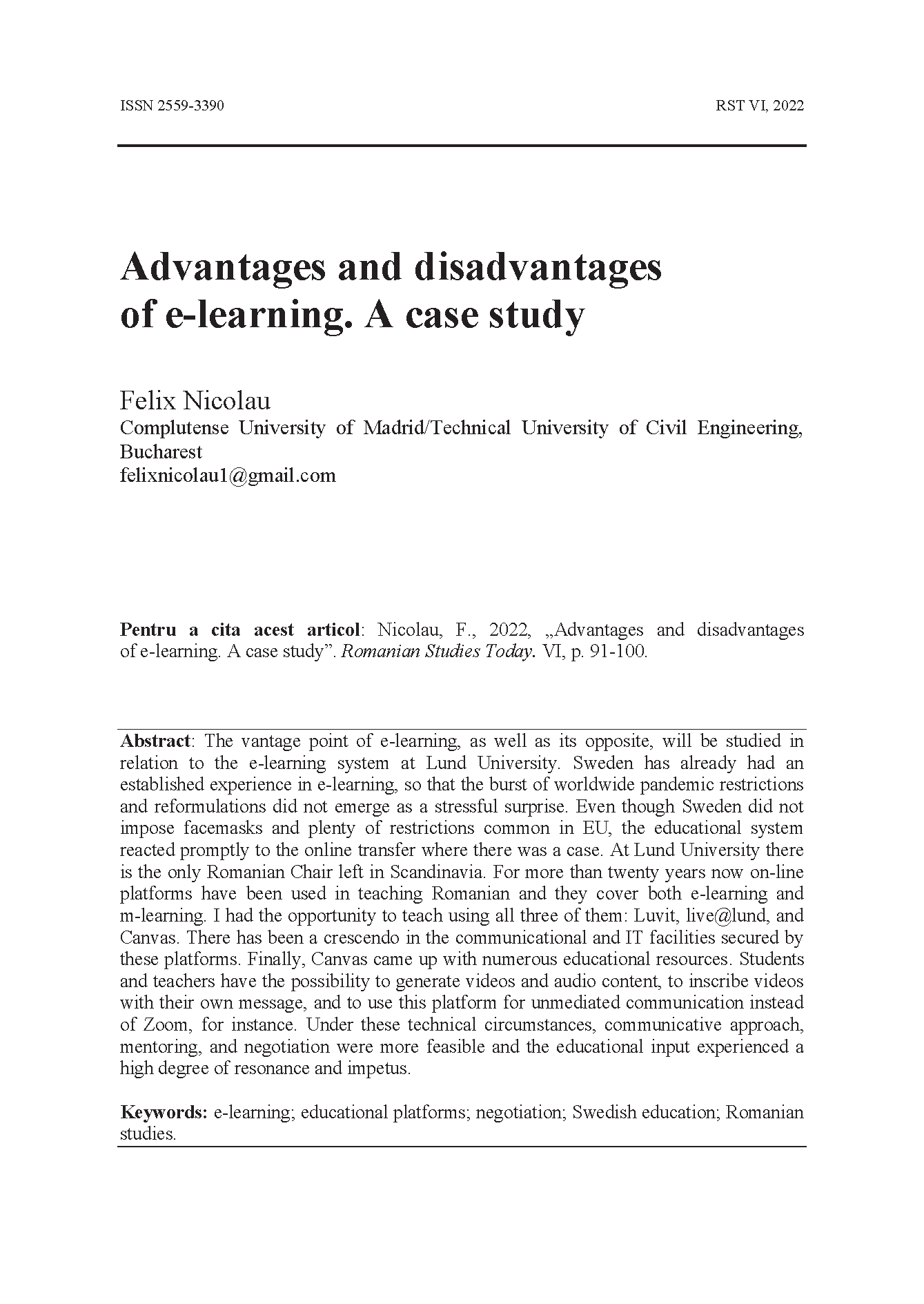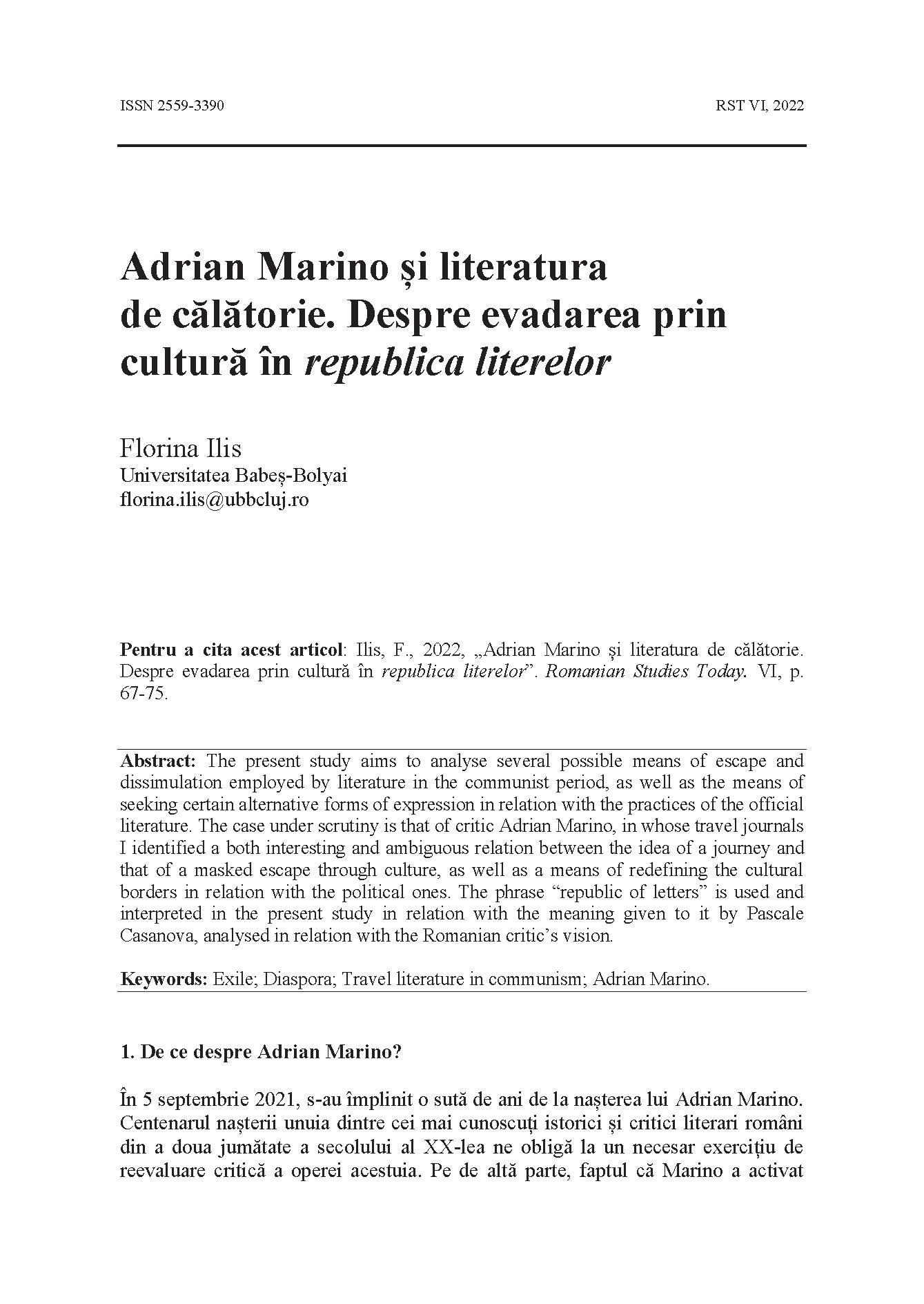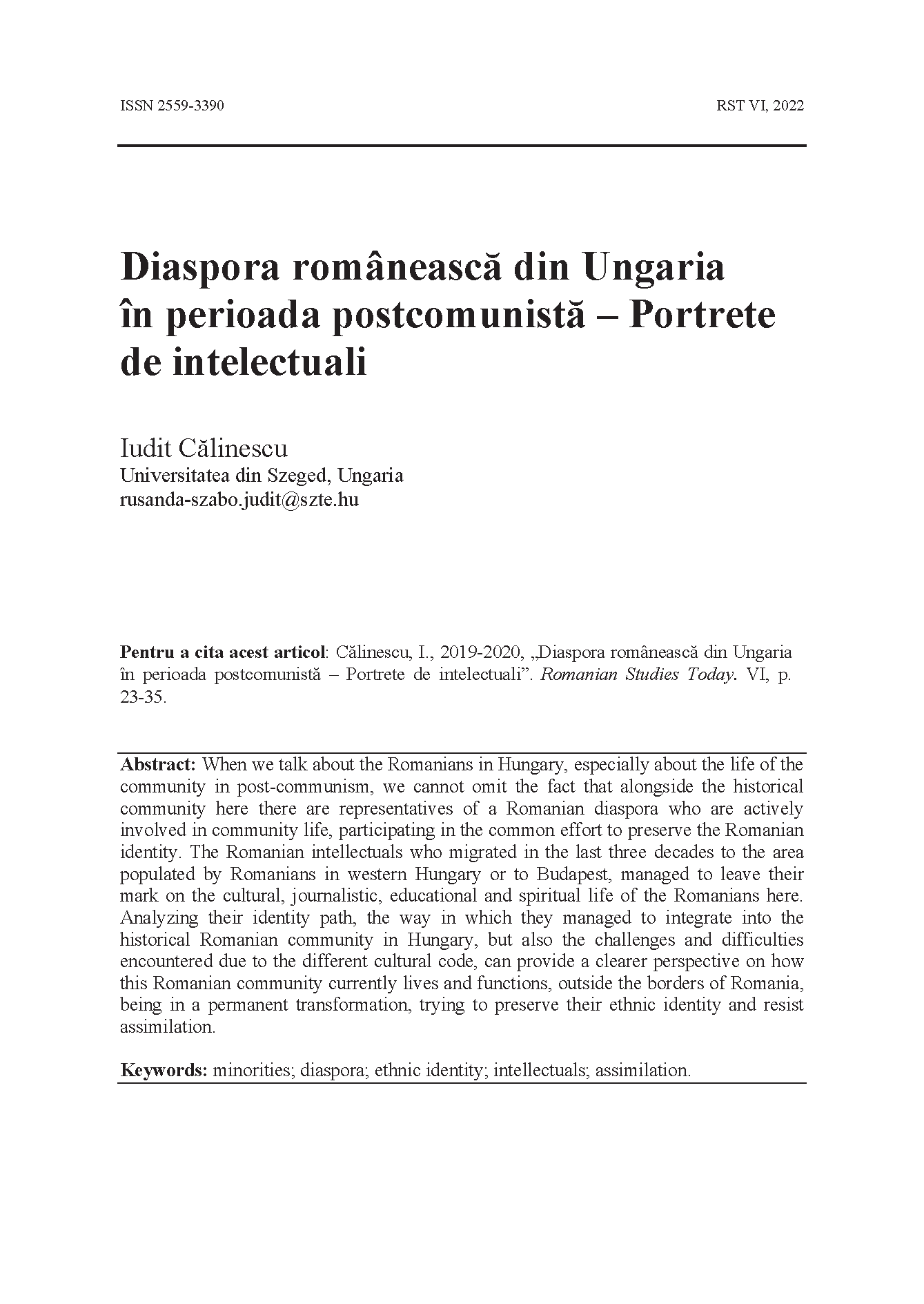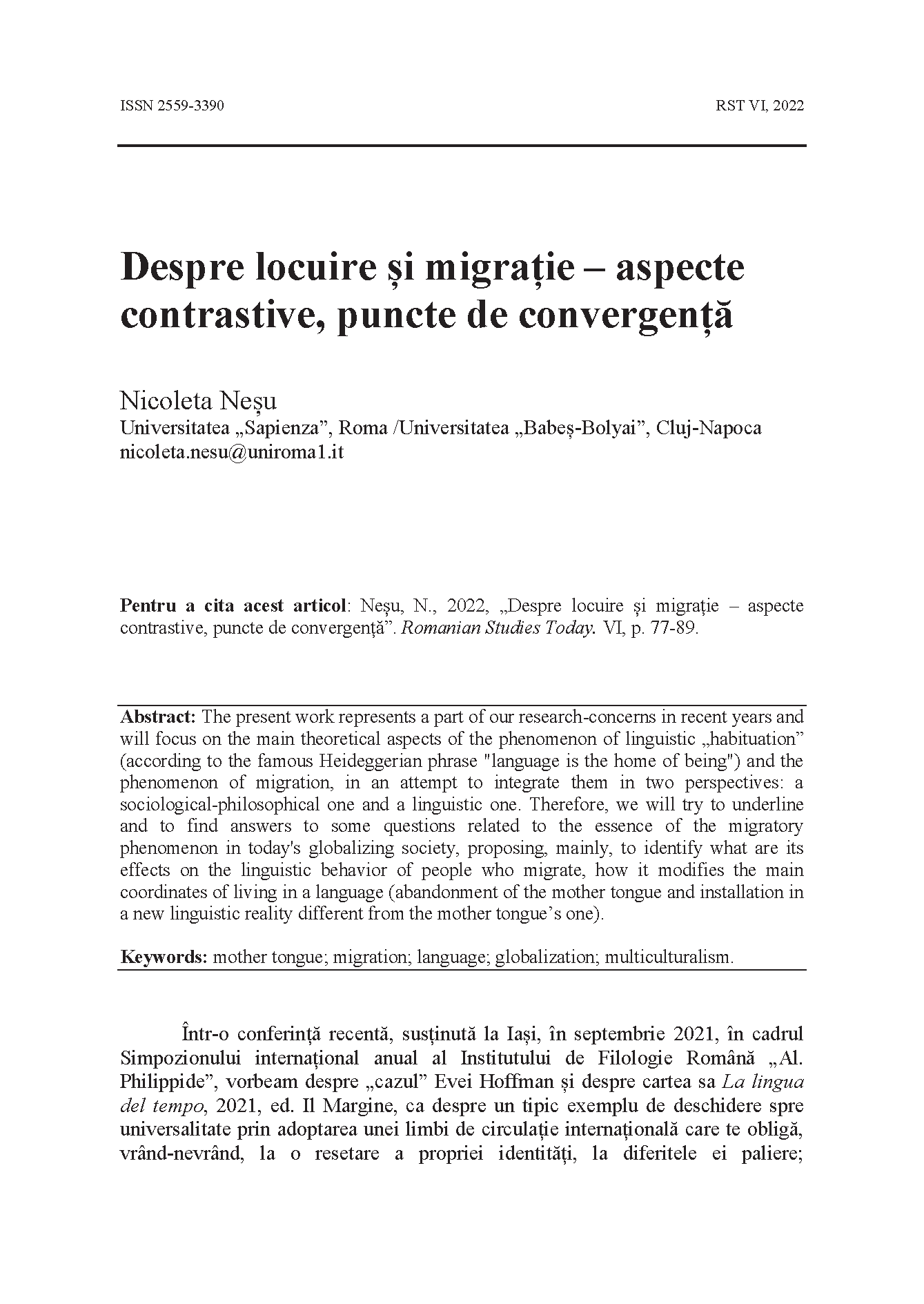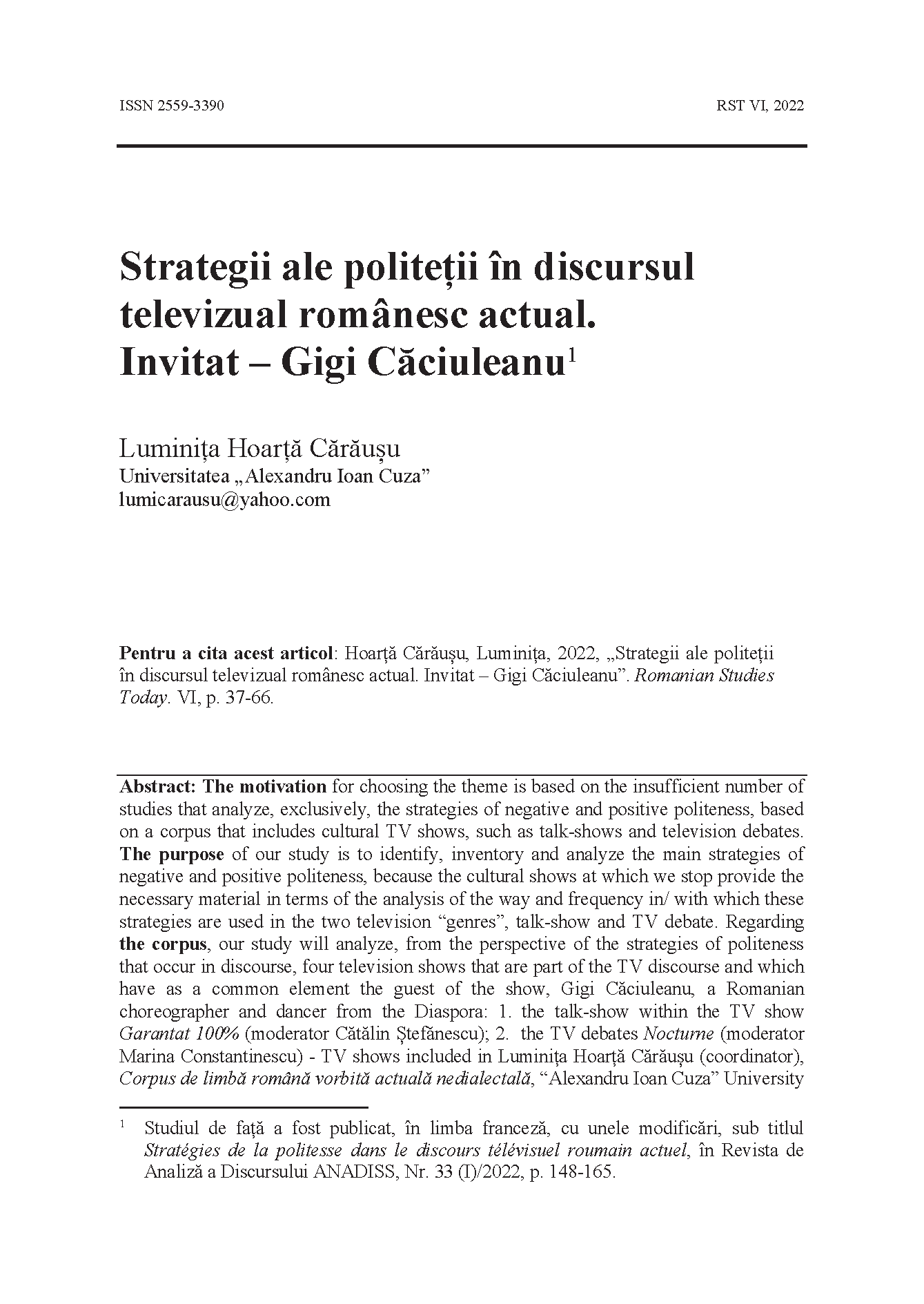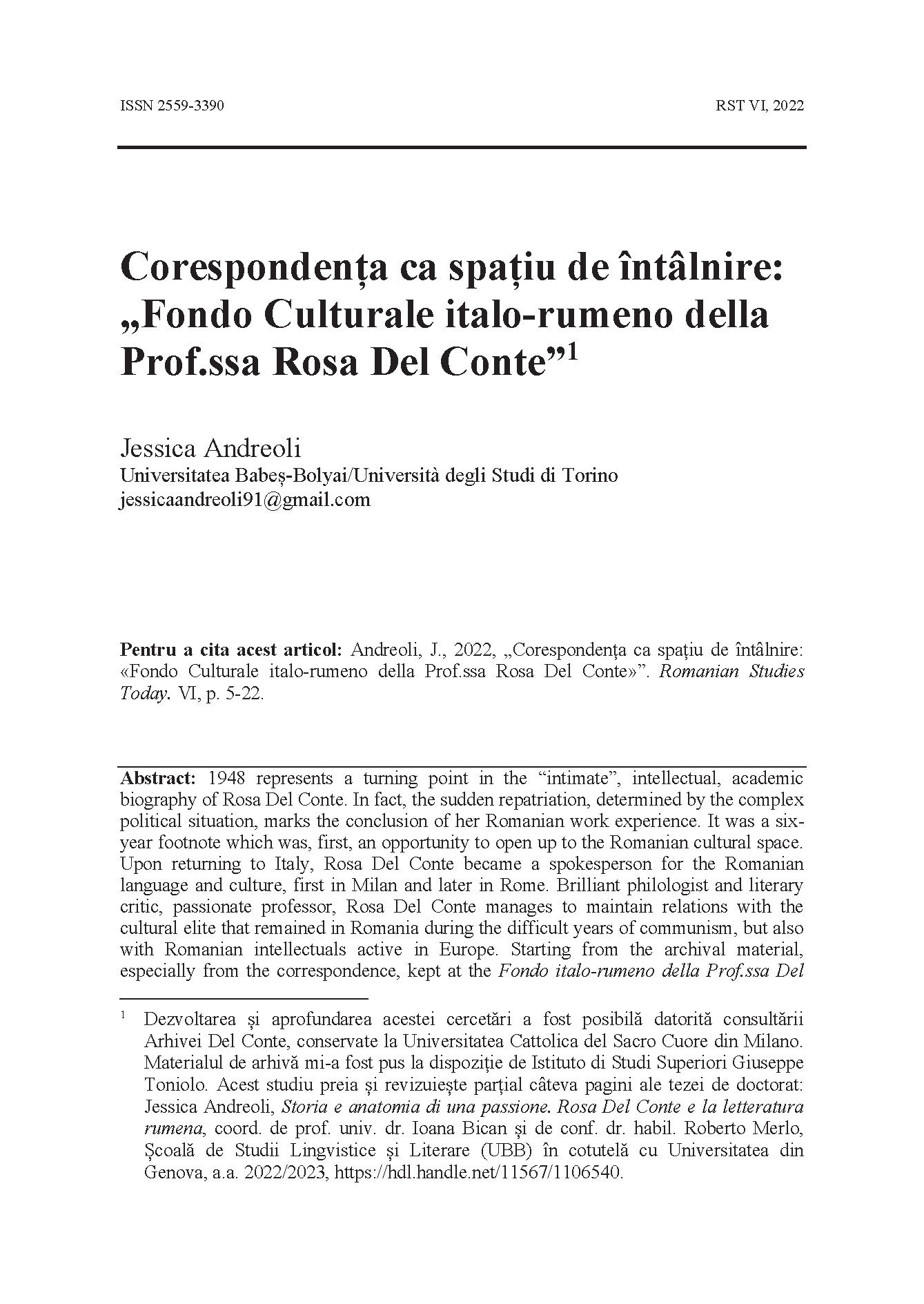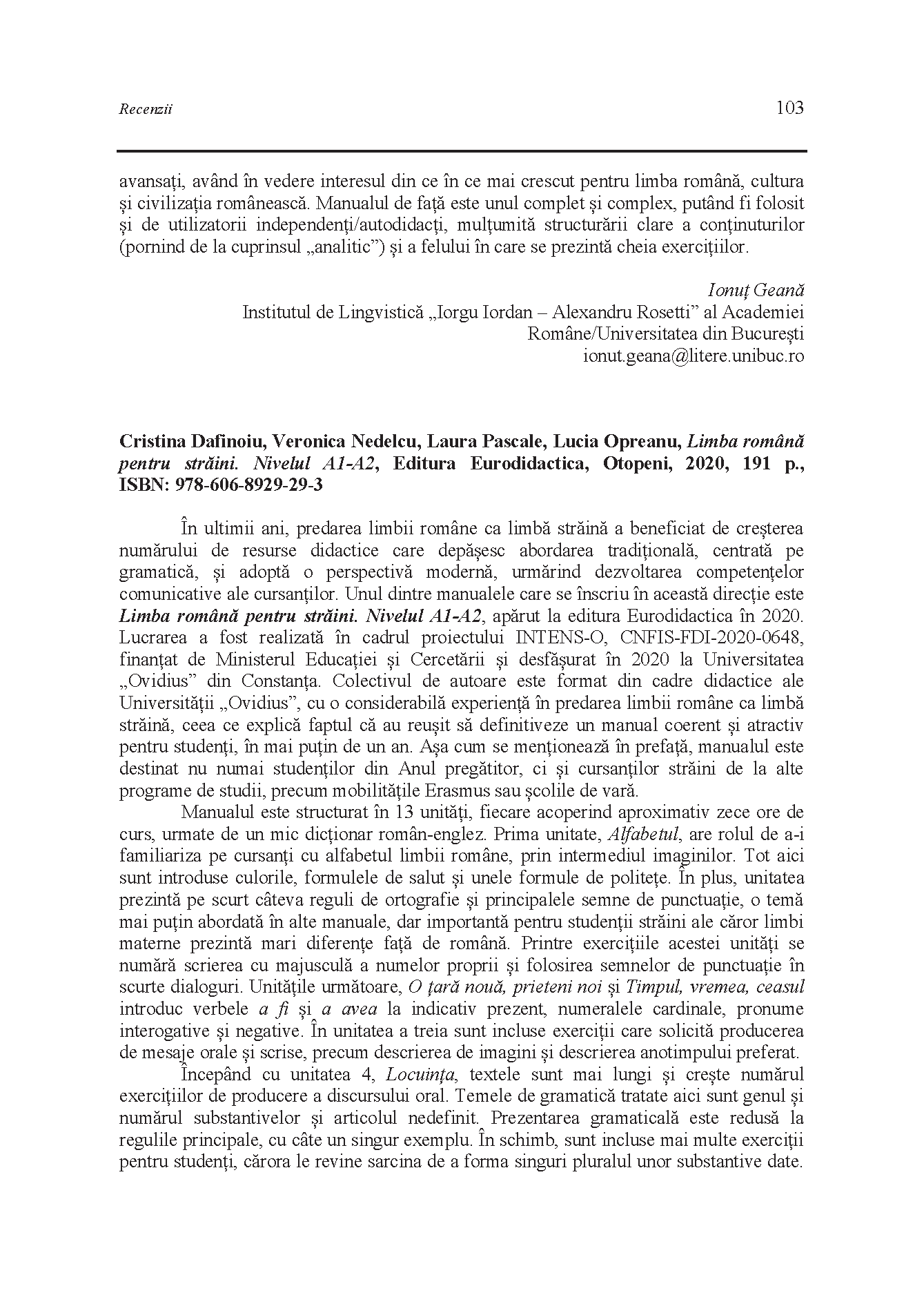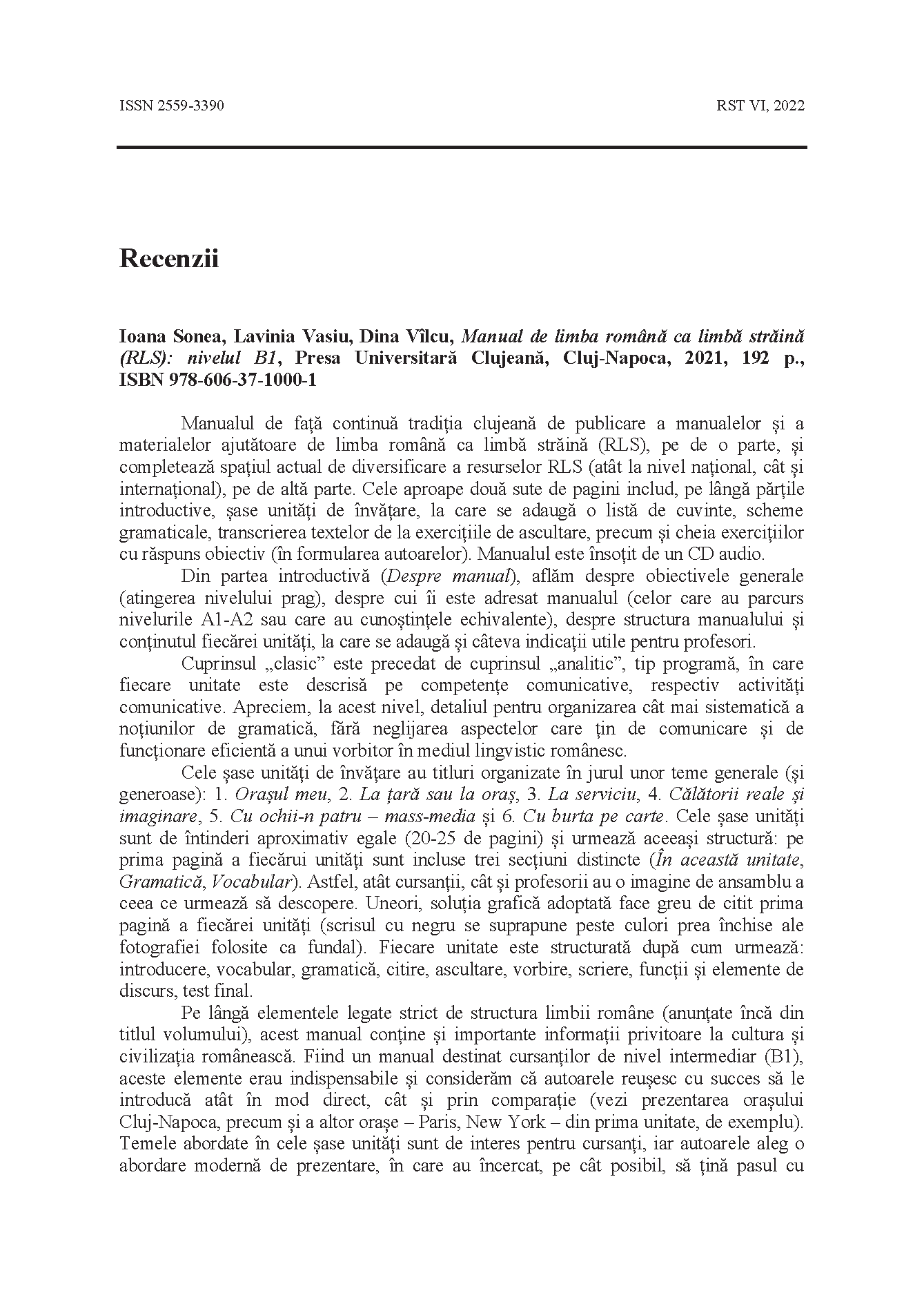Vol. 6 No. 6 (2022): ROMANIAN STUDIES TODAY VI, 2022

Romanian Studies Today is a journal for specialists, researchers and instructors in Romanian studies in all universities and research centres, and also for specialists, researchers and instructors in regional studies, history, anthropology, political studies or researchers in other domains with an interest in Romanian language, literature, culture and civilisation.
Published:
2024-02-15

